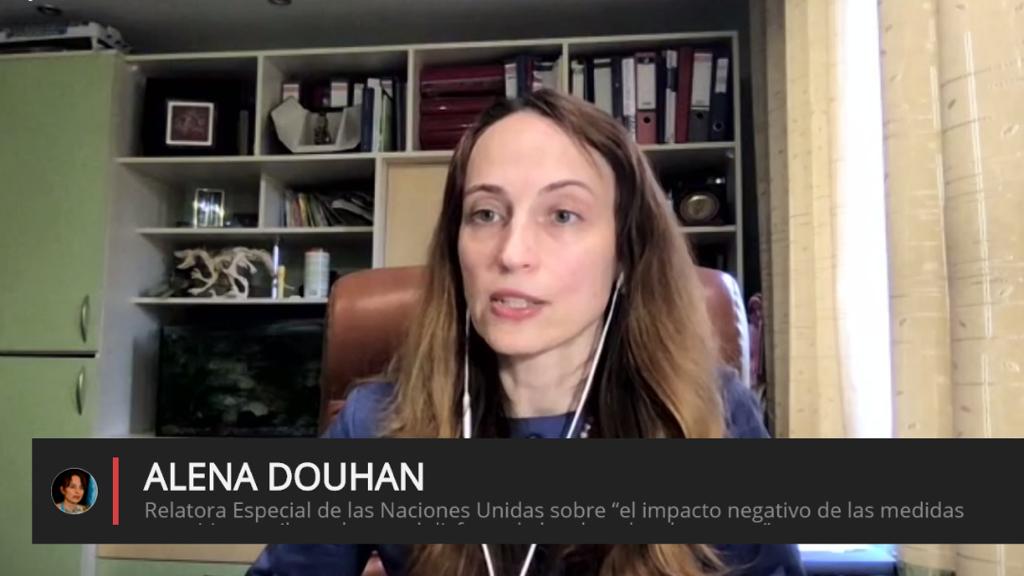The United Nations special rapporteur on the negative impact of unilateral coercive measures on the enjoyment of human rights, Alena Douhan, this Wednesday urged professors to evaluate which areas of International Law are affected by these measures and to consider, from an academic point of view, that there are primary sanctions, individual sanctions and there is also an expansion of sanctions for cooperating with someone sanctioned.
During her presentation at the videoconference Unilateral Coercive Measures: Disrespect for International Law and Serious Human Consequences, the also professor at the Belarusian state university regretted that there are few academic works on the subject, for which she invited to strengthen this area of knowledge.
She indicated that in academic meetings, in the context of her mandate in the aforementioned special rapporteur, she recommends establishing a global network of academics, with representatives of different legal traditions and schools of international law, to prepare evaluations regarding coercive measures.
She also added that a second recommendation is to create a database of academics to strengthen research on the subject.
The Special Rapporteur of the UN Human Rights Council, based in Geneva (Switzerland), warned that despite her call to suspend unilateral coercive measures, shared by NGOs and Secretary General António Guterres himself, they continue to be applied and expanded every day.
The professor explained that there is a great diversification of unilateral coercive measures, which makes it complex to study them.
Canciller Arreaza inaugura videoconferencia “Medidas Coercitivas Unilaterales: Irrespeto del Derecho Internacional y graves consecuencias humanas”
In her presentation, the rapporteur Douhan analyzed the areas of international law that in her opinion are the most affected by the application of coercive measures, such as the International Security Law; the fight against international terrorism; emergency reasons such as those argued by the government of the United States; International Economic Law; International Humanitarian Law and International Criminal Law.
In the case of international security, she commented that many academics refer to these economic sanctions as something that is preferable to the use of force and that security has nothing to do with the application of unilateral coercive measures, “which is not true”, adding that in the discussion on the subject of the UN Security Council, the countries showed very different positions, which denotes that it is a subject in which the academy must deepen.
Regarding the International Criminal Law, Douhan pointed out that she awaits the decision of the International Criminal Court on the referral introduced by Venezuela, because it may be the beginning of valid bases to initiate actions against unilateral coercive measures.
At the conclusion of her presentation, the UN representative considered that all areas of International Law are affected by the application of unilateral sanctions and that this should be evaluated not only from the point of view of human rights, but in all areas of international law, so he insisted on her call for academics to do research in this area.



